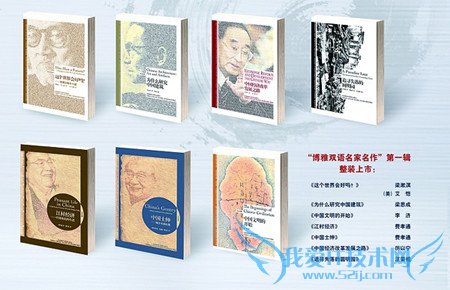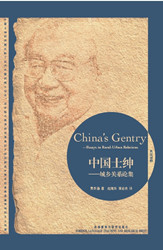��ӭ������52ijӢ��������������С��Ϊ�������Ӣ��֪ʶ�ǣ���������˫��������������Тͨ���й�ʿ���ģ�������������ϸ�ķ�����
������˫��������������Тͨ���й�ʿ���ģ�

�й�ʿ�𡪡������ϵ�ۼ�China��s Gentry��Essays in Rural-Urban Relations
����飺��Тͨ���������ѧ�ҡ�����ѧ�ҡ�����ѧ�ҡ�����ң��й����ѧ������ѧ�ĵ����֮һ��
���ݼ�飺��ТͨӢ�Ŀ��������ϱ��Ķ��й�ũ����й������������������У���ͳ��������˺�ʿ������ã������ͳ���֮��Ĺ�ϵ������ʶ�й���ͳ���ġ����ȶ��ṹ��������Ҫ���壬���������й����������Ĺؼ���
There was a weak point, however, in this centralized monarchical system. He who held power, the emperor, as I have said, could not administer the country by himself. Even though he might not wish to share his authority, he still required help in ruling and must therefore employ officials. These officials, with whom the ruling house had no ties of kinship, functioned merely as servants with administrative power but no power of policy-making. It was within the inefficiencies of this system that the ordinary man found his opportunity to carry on his private concerns. ���������ּ�Ȩ��ר��ͳ����һ�����㣬������˵��������������Ȩ�Ļʵۣ����ܶ��Թ������ҡ���ʹ����Ը���ñ��˷���Ȩ����������Ҫ�������������ֺʹ�����Э����ʵʩͳ�Ρ���Щ���������û�����ݹ�ϵ����ͬ�ʵ۵Ĺ�Ӷ������û������Ȩ��ֻ����������Ȩ��������Ч�ʵ��µ��ƶ��£���ͨ���ղ��л������˽����
It is true that previous to the unification of Ch��in (221 B.C.) there were attempts to establish an efficient administrative system. This was done under the influence of the Fa Chia, or Legalist, school of thought. Theoretically, the system proposed by this school of thought was a good one.In order to have an efficient administration of the country, a legal basis must be established, with everyone controlled by the same law. Shang Yang, as prime minister of Ch��in, attempted to put this theory into practice. But the theory unfortunately neglected one small point. One man, the emperor, was left outside the law. And this omission destroyed the whole system of the Fa Chia. ���س�ͳһ���ң���Ԫǰ 221 �꣩��ǰ��ȷʵ����Щ����Ҫ����һ������Ч�ʵ����������������ܵ��˷���ѧ�ɵ�˼���Ӱ�졣����������������һѧ���������ϵ�Ǻõġ� ��Ч�ʵ���������������һ�����ƵĻ����������˶�Ҫ�ܵ�ͬ���ķ��ɵĿ��ơ���Ϊ�ع������������ͼҪ����һ���۸���ʵ�����ɲ��ҵ��ǣ���һ������һ��СС�����������һ����û�б����뷨��֮�ڣ��Ǿ������ӡ������ڷ���֮���һ����ȴ�ѷ��ҵ�������ϵ�����ˡ�
Shang Yang himself lost his life on this account, for, though under the law he was able to punish the prince when he was only the heir to the throne, as soon as the prince became emperor, he ordered Shang Yang killed. And the efficient system which Shang Yang himself had established prevented him from escaping. ��������Լ��������ˣ������ڷ���֮�£����ܹ��Ի�ֻ����λ�̳��˵�̫�Ӽ��Գͷ�������̫��һ���ϻʵ۾��������ɱ�����������Լ������������ĸ�Ч�ʵ���ϵҲʹ���Լ��ڽ����ӡ�
If the highest authority were bound by law, then administrative authority would be able to cage the tiger. But in Chinese history this has never happened. As a result, the ruled, including the officials themselves, have never sought for efficiency in administration. Rather the opposite has been true. Inefficiency and parasitism, on the one hand, remoteness of imperial control and a do-nothing policy by the emperor, on the other��this has always been the ideal. Yet this ideal of government, of a ��good emperor�� as one who presided but did not rule, has rarely been attained. As far as the officials were concerned, the next best thing, then, could only be to protect themselves, to keep a back door open for their relatives, and to be able to use their position as a shield against the emperor��s whims. To protect not only themselves but their relatives and their whole clan from the unchecked power of the monarch, and to do this not by constitutional or by legal means but by personal influence��this is what they sought. Not by challenging the emperor��s authority but by coming close to him, by serving him and from this service gaining an advantage in being enabled to shift the burden of the emperor��s demands onto the backs of those lower down, did the propertied class attempt to neutralize the emperor��s power over them and to avoid the attack of the tiger. Groups of officials, with their relatives, formed, thus, in Chinese society a special class not affected by the laws, exempt from taxation and conscription. Nevertheless, they had no real political power. �����ߵ�Ȩ���ܵ��˷��ɵ�Լ������ô������Ȩ�����ܹ�����ֻ�ϻ���ס���������й�����ʷ�ϣ��������������û�з��������������ͳ���ߡ������������Լ����ڡ��������Ͳ��������ϵ�Ч�ʡ�ʵ�ʵ����������֮�������һ��������Ч�ʺͼ�������һ��������ʵ�Զ�Լ��ʵ۵���Ϊ���ߡ�����һֱ��һ�������״̬��Ȼ���������������룬����˵һλ���ûʵۡ�Ӧ��ͳ�����Σ������Ļʵۺ��������ܹ��������������ԣ��˶�����εİ취��ֻ���DZ��������Լ���Ϊ���ǵ����ݿ����ţ����һ��ܹ��������ǵ�λ����Ϊһ�ֵ������������ʵ۵ı仯����Ҫ�����IJ����������Լ����������ǵ������Լ������������ⲻ�����Ƶľ���Ȩ�������ţ������������������IJ������ܷ����߷��ɵ��ֶΣ������������˵�Ӱ���������������������ġ��в�����Ҫ��ĥ���ʵۼ����������ϵ�Ȩ�������Դ����ܿ���ֻ�ϻ��Ĺ����������ǿ��Իʵ۵�Ȩ��������ս�����ǿ����ʵۡ�Ϊ�ʵ۷����л�õ�һ�ֺô������ܹ����ʵ۸���Ҫ��ת�Ƹ����Լ��ײ�����ߡ����ż���ӻ��µ����Ѽ����ɴ˹������й���������е�һ�����ܷ���Ӱ��Ľײ㣬������������˰����Ȩ����Ȼ��ˣ������Dz�û������������Ȩ����
To escape domination while approaching the source of power takes a highly developed skill. The position of the officials was not easy. As the old sayings go, ��When the emperor orders your death, you must die�� and ��All the blame is mine; the emperor can do no wrong.�� If the official 33relaxed his efforts on behalf of the emperor, he might lose his life. When the emperor required money or labor, he must be active in meeting these demands��a task he accomplished by shifting the burden onto the backs of the people. Yet, if the burdens became too heavy for the people to bear, they might rebel, and it was then the officials who would be attacked first and who would serve as the scapegoats of the monarch. The officials must be two-faced: severe toward the people and compliant toward the emperor. They must know the art of going just so far and no further in order that they might not be caught either by the fury of the emperor or by the wrath of the people. Chinese officials�� life has been described as the art of maneuvering on a stormy sea. Experience through the ages was the teacher. It may be noted that in Chinese the expression, ��Do not speak to me officially,�� does not mean the same thing as in English but rather, ��Speak to me sincerely.���ӱ��Լ���Ҫ�ӽ���Ȩ��֮Դ��֧�䣬��Ҫ�и߳��ļ��ܡ����ŵ�λ�ò������ɡ�����������ԣ� ����Ҫ�����������ò����� �����С����ﵱ�����ʥ���� �������ܵ���������ʵ۵����棬��������������������ʵ���ҪǮ��������ʱ���������ر�������������Щ��Ҫ����ͨ�������������θ���ת��ƽ�����������������¡����ǣ�һ�����ָ������أ�����������֮ʱ�����DZ���������췴����ʱ������Щ�������������ܵ��������ɴ˶����˹��������������DZ�����������Ŀ���������Ͽ���Իʵ�˳�ӡ����DZ���Ҫ֪�������нڣ��ʿɶ�ֹ���������˼��˶������˻ʵۣ���������������ļ��ߡ��й������ǵ�������������Ϊ���ڷ��Ʊ�õĺ����˳��ᢵ������������ഫ�ľ��鼴Ϊ��ʦ��Ӧ��ע����ǣ��ں�������˵�ġ���Ҫ���ǻ�� ��������Ӣ���������˼һ������ʵ������˵�� ������˵ʵ���� ��
In normal times to be an official was no direct economic advantage. From the monarch��s point of view, for an official to use his position to enrich himself meant corruption of the system and a diminution of his own treasure. Thus, unless a monarch were very weak, he would not tolerate such officials. An official in ordinary times would not improperly profit from the office but would leave it with ��two sleeves full of wind.�� Why, then, should people want to be officials? The poem of T��ao Yuan-ming expresses the feelings of one such man: ��ƽ������������ٲ�û��ʲôֱ�ӵľ����ϵĺô����ڻʵۿ�������Ա�����Լ���ְλ���¸���������ζ�Ÿ�����Ȩ���������ƶȣ������ǻʼҲƸ��ļ�������ˣ�����ijλ�ʵ��������ܣ��������Dz������������ֹ�Ա���ڵġ�����̫ƽʢ���Ĺ�Ա����Ϸ��شӹ�λ���̵��ô�����ֻ��������ʱ���¡�������硱����ô��Ϊʲô���ǻ���Ҫ�����أ���Ԩ����ʫ���������ָп���
Why should I be an official? ��ΪʲôҪȥ�����أ�
I bend my back, for only three piculs of rice. ֻΪ�嶷��������
Why should I not go back to till the land? ��Ϊʲô���������
T��ao Yuan-ming was a typical unworldly poet. Yet, in spite of his talent and his interest in the things of the mind, even he had to ��bend his back�� and occupy an official position and withal receive only a small financial reward. Why did such a one accept this position instead of staying home where he was happy? The fact is that, if he had shown his scorn of officialdom by leaving office, he would probably by now be ��a man without an arm.��The choice lay between ��bending the back�� or being disabled. The necessity for becoming an official was a little like the need for being inoculated. Just as one runs the risk of having a bad reaction 35to an inoculation, so in becoming an official one may risk having one��s property confiscated or even one��s head cut off. But, once the inoculation is over, one has gained protection. This analogy is not too apt, since from an inoculation one person becomes immune, whereas if one has been an official one can protect a whole group of people. As a result, it happened that sometimes a group would join to aid in the education of one man so as to enable him to reach officialdom. ��One man rises to officialdom, then all his dogs and chickens will be promoted,�� is the saying.��Ԩ����һλ���͵ij���ʫ�ˡ����������в�����Ҳ���з��ţ��������ǡ��������� ������һ����λ��������Ϊ�˵õ���ôһ��ٺ»��Ϊʲô������һ����Ҫȥ����������һ��λ�ã������Ǵ�������ϲ���ļ����أ���ʵǡǡ�ǣ��������ı��ֳ��Լ������Ϲ�ְ�����ٶ�ȥ�����Ϳ��ܳ�Ϊһλ���۱��̡��ˡ� 16�����˵�����ڡ��������͡��۱ۡ�֮������ѡ�����ٵı�Ҫ���е��������롣����������Ҫð���˹����в�����Ӧ�ķ���һ�������پͿ���Ҫð���Һ͵��Դ���Σ�ա����ǣ�һ����������˾Ϳ������������ˡ������ı������е㲻���У���Ϊ���˷����룬ֻ�ܹ�ʹһ�����Լ��õ����ߣ����������ܱӻ�����һ��Ⱥ���ˡ������ʱ�ͳ�����һ��Ⱥ������һ����ȥ���飬�Ա�ʹ���ܹ���ø�һ�ٰ�ְ��һ�����٣���Ȯ������
In Chinese traditional society the clan or big family naturally constituted a group which could take action of this sort, supporting one of their members until the time when he should become a scholar and be eligible for the official examinations. Once this individual attained official honors, the whole clan could rely upon him. Without any strong person at court, it was difficult to protect one��s property. Ku T��ing-lin was an official during the Ming dynasty, but, when the rule passed to the Manchus, he refused to continue in an official position, gave up traveling abroad, and shut himself up at home with his books. Yet for his own protection he was obliged to send his two nephews to the Ch��ing court to serve his enemies. This was made possible by the fact that, as we have said, Chinese officials did not share in the political power of the emperor but served their monarch by neutralizing and softening down his power rather than by supporting it. With his nephews in court, the uncle was protected even in secret rebellious activities. According to Chinese tradition, officials did not work seriously for the government, nor did they like to continue as officials for a long period. Their purpose in entering the government was to gain both immunity and wealth in this order. The Chinese officials when in office protected their relatives, but, when this duty to the family had been performed, they retired. Retirement and even a hermit��s life were the ideal. In retirement there was no longer any authority to be served with watchful care, while the relatives who had gained protection from their kinsman official owed him a debt of gratitude. Now he need only enjoy his social prestige and grow fat and happy. As we say in China, ��To come back to one��s native soil, beautifully robed and loaded with honors, is the best thing in life.�����й���ͳ����У�����ʹ��ͥ��Ȼ������������һ�����壬�������������һ��������ǹ�����һԱȥ��ѧ��һֱ���������˹���������һ�ٰ�ְ��һ���˾��п�ɽ�ˡ����ڳ�͢��û�п�ɽ��������뱣�ֲƲ������ѵġ���ͤ����������һλ��Ա�����ij����������峯�����ܾ����ι�Ա����Ӽ�������Ŷ��顣����Ϊ�˰�ȫ�ͱ��ϣ������Dz��ò���������������͢��ȥ�̷����ĵ��ˡ����������Ѿ�˵���ģ���֮���Կ�������������Ϊ�й���Ա������ʵ۷�������Ȩ������ͨ����������������֧����Ȩ���������ھ������������٣������˾˾˵İ�ȫ������ʹ�˾��ܰ��ĵ�ȥ�¸��������ӡ��й���ͳ�Ĺ��������������٣��������������٣����������˾����Դ���Ϊ�֣�Ŀ�������ߺ������ߵĽ������й��Ĺ���������ʱ�ӻ������ѣ�����һ����������ɣ���Ҫ���ϻ����ˣ�����ν����ȥ���⡱��һ�ס�����ɽ�����й��˵����롣��ʱ���ϱ߲�����С���ź���ʱ����ɱ�������ӣ���Χ�Ǹм��������ݽַ�����ʱ��ֻ��Ҫ���������������������㣬�Ŀ����֡������й�����˵�ģ� ���½��������������������õ����顱 �� ������ð��ȥ������Ȩ�����ĺ��Ӷ����桰���ʵۡ�����Ϸ����������ĸ�����ƶȣ���Ϊ��������ƶȶ�����û�к�����һ�������뿪��Ȩ�����ƣ����Ϳ������ܵ����ľ���Ȩ����
Such a man will not attempt to seize power; his children will not play at being emperor. Nor will he have any idea of reforming the social system, for that system will do him no harm. Once out of the way of imperial influences, he may enjoy the economic power of a landowner. This is the sort of man I mean by gentry. The gentry may be returned officials or the relatives of officials or simply educated landowners. In any case, they have no real political power in shaping policies and may have no direct connection with politics whatsoever, yet they do tend to have influence at court and to be immune from political exploitation. And the more fearful the ruler and the more tiger-like, the more valuable is the gentry��s protective covering. In such circumstances it is difficult to survive except by attaching one��s self to some big family.�����˾�������ν�ġ�ʿ�� ��ʿ����������εĹ��ţ����ǹ��ŵ������������������ܹ������ĵ��������κ�����£����Ƕ�û���������ߵ�ʵ�ʵ�����Ȩ��������������Ҳû���κ�ֱ�ӵ���ϵ���������dz����������������������������ԡ�ͳ����Խ���£�Խ���ͻ�һ����ʿ��ı����Եıӻ����þ�Խ���ڴ�����£��б��ں��Ų�������

�༭�Ƽ���
��ТͨӢ��ԭ�����й�ʿ���״ι��ڳ���
����ʿ��ײ����й���ͳ���Ĺ���
����й����ġ����ȶ��ṹ���༭�Ƽ���
�����徭�á���Ӣ�����հ棩
��Тͨ������������־�ܣ��룩
�����ѧ���о�������
- �����б����������۽������ѱ�����˿���������������վͬ����۵��֤ʵ��������
-
